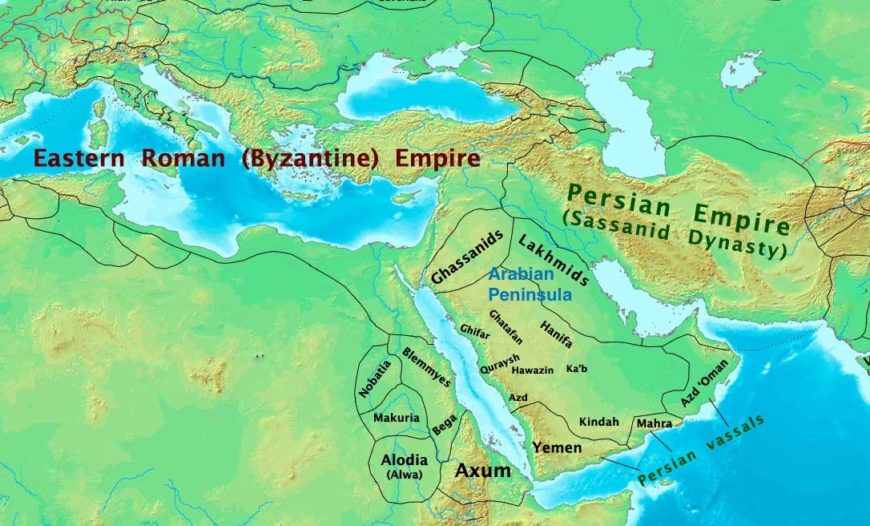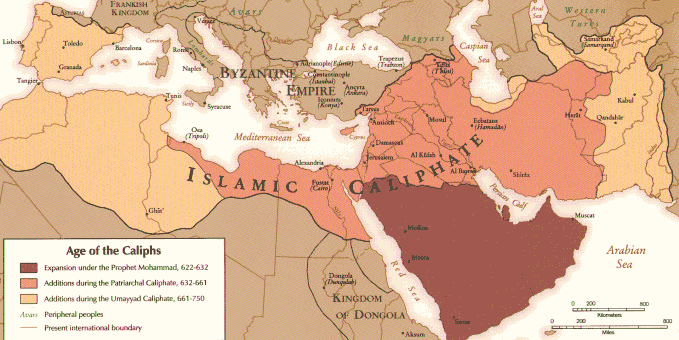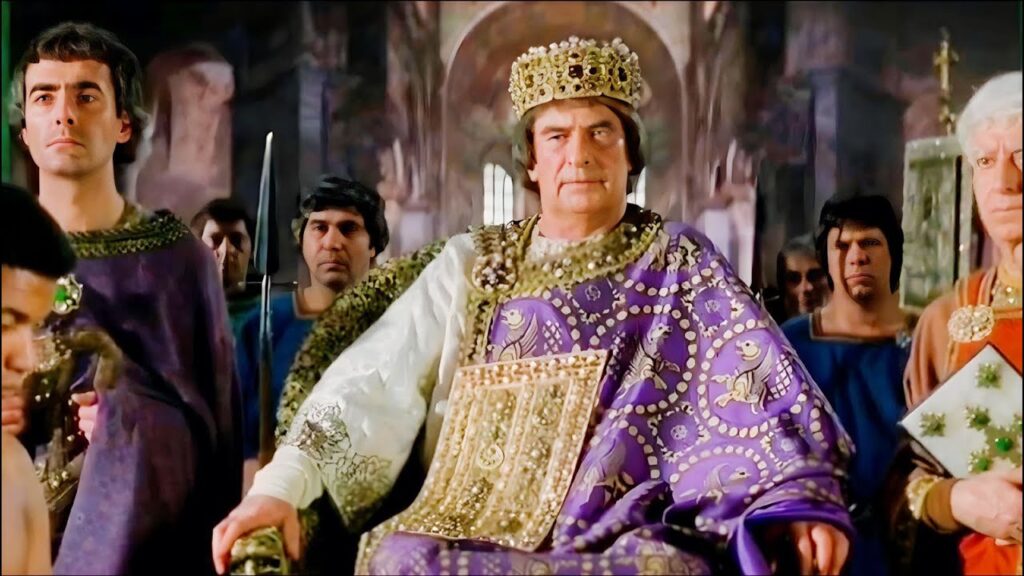When thinking about Roman emperors, people often remember names like Caesar or Augustus. Outside of Europe, though, views on Rome can look very different. In the Arab world, the Eastern Roman Empire holds special meaning, especially because of its connection to early Islamic history. Heraclius, the emperor during the rise of Islam, is a key figure who appears in both religious texts and popular stories.
The way media presents the relationship between the Eastern Romans and the Arab world shapes public memory today. Movies and television in Arabic-speaking countries often show Heraclius and his rivals in vivid ways. These portrayals show the lasting impact of history on how people see the past and understand the ties between empires and faith.
Key Takeaways
- Public views of Roman emperors differ by region and culture.
- Heraclius is an important figure in Islamic tradition and media.
- Films highlight contrasts between Roman and Persian leaders.
Current Views on Roman Emperors
How People Around the World Respond
Most people in many countries recognize a few Roman Emperors—if you ask someone randomly, they are most likely to mention “Caesar” or just refuse to answer. In Italy and Greece, people are more likely to recall famous names such as Augustus, Trajan, or Constantine.
Popular Media’s Influence:
- Movies and TV shape most people’s ideas about Roman Emperors.
- Academics may have similar information sources, but public opinion often comes from films and television.
| Location | Common Emperors Named | Reasons |
|---|---|---|
| Worldwide | Caesar | Popular culture, films |
| Italy/Greece | Augustus, Trajan, Constantine | Local history teaching |
Comparing European and Arab Understandings
The way Roman emperors are seen in Europe is different from how they are viewed in the Arab world. The relationship between the Arabs and the Eastern Romans is a key reason for this difference.
Main Points of Difference:
In the Arab world, the emperor Heraclius is particularly important.
- He ruled during the rise of Islam and is even mentioned in the Quran.
- Stories about his reaction to Islamic teachings are well-known and respected.
In Europe, there is less focus on Heraclius, and more on the early and well-known emperors.
Examples from Media:
- Films in Arabic-speaking regions often highlight the connection between Heraclius and the birth of Islam.
- One well-known movie, “The Message,” shows Heraclius as thoughtful and fair when receiving Muslim messengers.
- In these films, the Persian leader Khosrow is usually shown in a much more negative light than Heraclius.
Summary Table:
| Region | Key Figure Emphasized | Typical View |
|---|---|---|
| Europe | Augustus, Caesar, etc. | Roman Empire as heritage |
| Arab World | Heraclius | Religious and historical links |
How the Arab World Viewed Its Relationship With the Eastern Romans
Overview of Historical Encounters
The ties between the Arab world and the Eastern Romans, also called Byzantines, were shaped by events like wars, exchanges, and shifting views of power. When Islam appeared, the Emperor Heraclius led the Eastern Romans. His reign is remembered for big battles, especially against Persia.
The Qur’an mentions the Romans’ loss and later victory, linking their struggles to spiritual lessons for early Muslims. This gave hope during tough times and showed how closely the history of the two regions is tied.
Key Events Table
| Event | Year | Importance |
|---|---|---|
| Roman defeat in Levant | 614 | Major setback for Romans |
| Persian capture Jerusalem | 614 | Spiritual test for Muslims |
| Roman comeback led by Heraclius | 622 | Fulfillment of a Qur’anic prophecy |
| Muhammad’s letters to Heraclius | ~629 | Point of contact between empires |
Popular Ideas and Attitudes Toward the Romans
The Arab view of the Eastern Romans is colored by stories and media. Heraclius is shown as a complex leader—respectful to the Prophet Muhammad, unlike the Persian king, who is portrayed very negatively. These stories are important in popular Muslim culture.
In Islamic tradition, Heraclius treated Muhammad’s message with respect, leading some to believe this is why the Roman Empire survived while Persia fell. Films such as The Message often show this contrast, highlighting Heraclius’ curiosity and moderate response. However, these depictions do not always fully agree with historic texts, and sometimes scenes are creative.
Main Contrasts in Stories
- Persian ruler: Insults the Prophet’s message, leading to Persia’s fall.
- Heraclius: Listens thoughtfully, leading to the Empire’s endurance.
Popular culture, religious stories, and movies all help shape how Arabs see the Eastern Romans, focusing on moments of contact rather than long wars or politics.

Heraclius in Islamic Tradition
Heraclius and References in the Quran
Heraclius is linked to a major event mentioned in the Quran. The 30th chapter, often called the “Chapter about the Romans,” describes a time when the Romans lost a battle but were promised victory in the future. This connects directly to the Roman defeat in the Levant and the later comeback led by Heraclius against Persia.
| Event | Detail |
|---|---|
| Initial Loss | Romans lost Jerusalem in 614 AD |
| Heraclius’ Campaign | Turned the tide in 622 AD |
| Quranic Mention | Romans’ defeat and later victory predicted |
The prophecy’s fulfillment boosted confidence among early Muslims. Different translations of the Quran call the battleground the “lowest” or “nearby” land, both suitable because the conflict happened close to Arabia and in the Dead Sea area, which is the lowest place on Earth.
Effects of the Roman and Persian Conflict
The wars between the Romans and Persians were not just military struggles; they had a spiritual impact on early Muslims. Romans, seen as followers of Abraham’s God, losing to the Persians created doubts for some in the community.
- The Quran reassured believers that Roman victory would come.
- When Heraclius eventually defeated Persia, it was seen as a sign of divine support.
- This victory played a role in making early Muslim communities feel more confident in their own faith.
Heraclius’ Reaction to Muhammad’s Message
Islamic tradition holds a story about Heraclius receiving a letter from Muhammad. Unlike the Persian king, who insulted Muhammad and destroyed the letter, Heraclius reportedly responded with seriousness and respect.
Key Points from the Story:
- Heraclius asked people familiar with Muhammad, like Abu Sufyan, about him.
- After their discussion, Heraclius is said to have considered that Muhammad’s message might be true.
- He suggested that Romans should accept the new faith but backed down when his court objected.
“O, Romans! If success is your desire and if you seek right guidance and want your empire to remain, then give a pledge of allegiance to this Prophet.”
The story is widely accepted among Sunni Muslims, even though some details may be debated. The respectful attitude of Heraclius is often contrasted with the Persian shah’s insult, which is used to explain why the Persian Empire collapsed while the Roman Empire endured. Heraclius’ cautious respect is still remembered in Islamic stories and even depicted in films about the early days of Islam.
Differences Between Heraclius and Khosrow II

Responses to Muhammad’s Invitation
Heraclius and Khosrow II reacted very differently when they received messages from Muhammad.
- Heraclius, the Roman Emperor, was respectful after getting the Prophet’s letter. He asked someone familiar with Muhammad about him and thought deeply about the message. Heraclius even suggested to his people that they should consider following Muhammad’s new faith, though he did not actually convert.
- Khosrow II, the Persian ruler, had a hostile reaction. He tore Muhammad’s letter and insulted him. This story became widely known and is often mentioned in Muslim traditions as a sign of disrespect.
Below is a simple comparison:
| Emperor | Response to Muhammad | Outcome in Tradition |
|---|---|---|
| Heraclius | Respectful, considerate | Seen in a positive light |
| Khosrow II | Insulting, dismissive | Seen negatively, punished historically |
Impact on Religion and Culture
The actions of these leaders carried deep religious and cultural meaning for the Muslim community.
- Heraclius is generally seen more favorably. In many stories told by Muslims, he is a symbol of respect toward Islam. Some believe his actions explained why the Roman Empire was not conquered right away by the early Muslims.
- Khosrow II is often viewed negatively. For Muslims, his disrespect appears to be a reason that Persia fell to Muslim armies later.
Muslim songs and poems sometimes remind people of these events, with strong and clear messages about both rulers.
- The Roman victory over Persia was thought to confirm a prophecy and gave hope to early Muslims.
- Popular culture and movies in the Arab world continue to present Heraclius as a thoughtful ruler and Khosrow II as an enemy of Islam.
This difference shaped how both empires were remembered in Islamic history.
Heraclius on the Screen in Arab Films

Overview of “The Message” Movie
The Message (1976) is a film about the beginnings of Islam. The movie follows the life of Muhammad in Arabia. Early in the film, there is a scene showing messengers visiting three powerful leaders: the Roman emperor, the king of Persia, and the Patriarch of Alexandria.
These scenes briefly introduce Heraclius, the Roman Emperor. The film has both English and Arabic versions. It was nominated for an Academy Award for Best Original Score.
How Roman and Persian Leaders are Shown
In The Message, each ruler reacts differently to the messengers. Khosrow, the Persian king, is rude and tears up the message he receives. Heraclius, on the other hand, listens and is polite to the messenger.
The movie does not show Heraclius accepting Islam or pretending to convert, as some stories do. Instead, the film shows Heraclius being curious and thoughtful. He even compares the messenger’s words to what John the Baptist said to Christians.
Below is a short comparison table:
| Leader | Attitude Toward Messenger | Key Actions in Film |
|---|---|---|
| Khosrow II | Hostile | Tears letter, insults |
| Heraclius | Respectful | Listens, makes comparisons |
| Patriarch | Comic portrayal | Shown on “Egyptian” throne |
Making the Movie and Reaction to It
The movie The Message was funded by Muammar Gaddafi. This support helped make the film possible.
After its release, the film stirred up controversy. In 1977, a group called the Hanafi Movement took over government buildings in the United States. They demanded that the film be banned and all copies destroyed. They argued that the movie did not respect their beliefs.
Despite early protests, the film is still available and watched by many. Today, The Message is seen as one of the key movies about the early years of Islam, with its scenes of Heraclius standing out in Arabic cinema.
